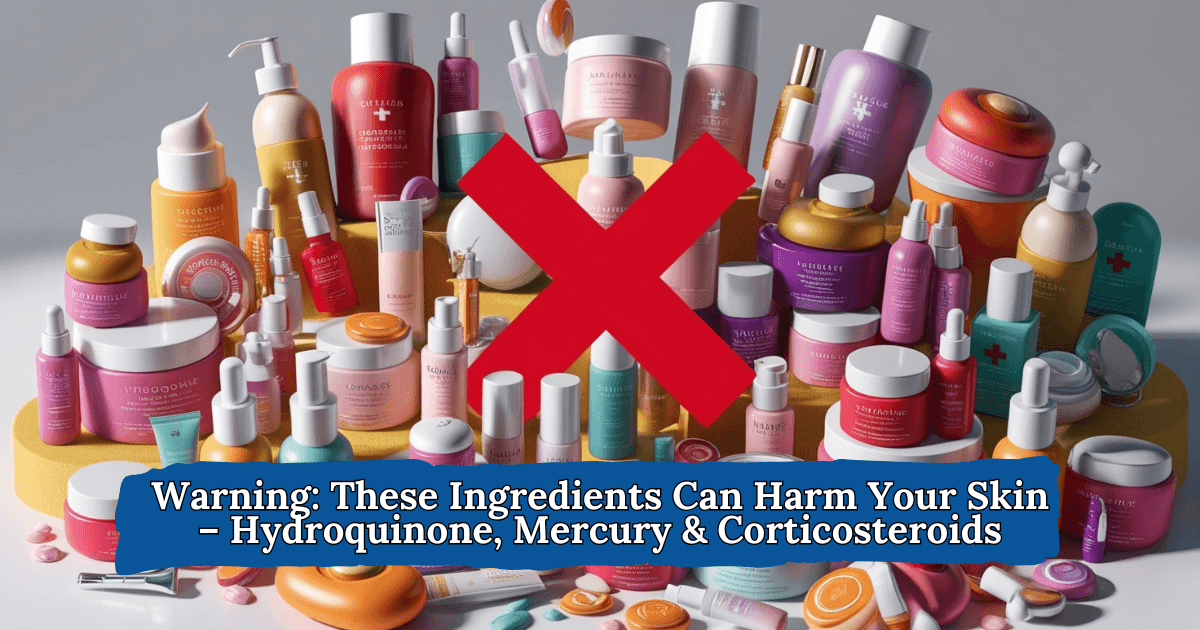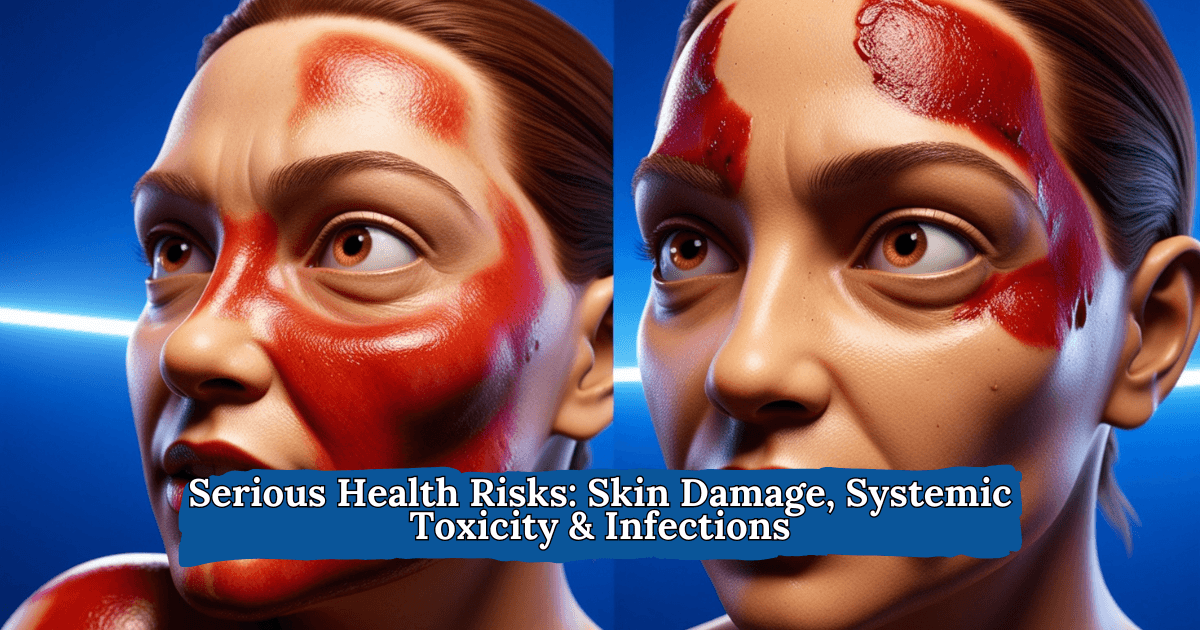
Dangers of Skin Bleaching
Share
Skin bleaching involves the use of products designed to lighten skin tone or reduce hyperpigmentation. While some individuals seek these treatments for conditions like melasma or age spots, the use of skin bleaching products carries significant health risks, especially when used without medical supervision.
Harmful Ingredients in Skin Bleaching Products

Many skin bleaching products contain active ingredients that can pose serious health risks, including:
1. Hydroquinone
- Inhibits melanin production and is commonly used in skin lightening products.
- Can cause skin irritation, ochronosis (bluish-black discoloration), and an increased risk of skin cancer.
- The FDA reported serious side effects in 2020, including rashes, facial swelling, and exogenous ochronosis.
2. Mercury
- Found in some illegal skin lightening products.
- Can cause kidney damage, neurological issues, and psychiatric disorders.
- Pregnant women risk passing mercury toxicity to their unborn child.
- The FDA warns against using any skin products containing mercury.
3. Corticosteroids
- Sometimes included in skin lightening creams without proper medical supervision.
- Prolonged use can lead to skin thinning, infections, hypertension, and elevated blood sugar levels.
Health Risks Associated with Skin Bleaching

The use of skin bleaching products can result in severe health issues, including:
- Dermatological Effects: Skin irritation, redness, increased sensitivity, permanent discoloration, and scarring.
- Systemic Toxicity: Mercury and other chemicals can be absorbed into the bloodstream, affecting the kidneys and nervous system.
- Infection Risk: Thinned skin due to corticosteroids increases the risk of bacterial, viral, and fungal infections.
Brands and Products of Concern
Certain skin bleaching products have been found to contain toxic substances:
- Jamaican Skin Bleaching Products: A 2020 study found that 6 out of 60 products contained dangerous levels of mercury.
- Imported Products: Some skin lightening products from unregulated markets may contain arsenic, mercury, and hydroquinone.
Also Read:
- Why DEET Repellent is Essential for Travelers and Residents in High-Risk Countries
- DEET vs. DEET-Free Mosquito Repellents: Benefits, Differences, and How to Choose the Right One
- The Difference Between Chemical Burns from Bleaching Products and Sunburn: Dangers and Treatments
- Glycolic Acid vs. Salicylic Acid: Understanding the Key Differences
- Dangers of Skin Bleaching
Regulatory Actions and Recommendations
Government agencies have taken steps to limit the dangers of skin bleaching products:
- FDA Warnings: Advises consumers to avoid over-the-counter products containing hydroquinone and mercury.
- International Bans: Countries like Japan, Australia, and the European Union have banned certain skin lightening agents due to safety concerns.
Safe Alternatives and Precautions

For individuals looking to reduce hyperpigmentation, safer alternatives exist:
- Consult a Dermatologist: A board-certified dermatologist can recommend safe and effective treatments.
- Use Sunscreen: Protecting skin from UV radiation helps prevent further pigmentation issues.
- Try Natural Ingredients: Vitamin C, niacinamide, and licorice extract have skin-brightening properties without toxic side effects.
Frequently Asked Questions (FAQs)
1. Is skin bleaching safe?
Most skin bleaching products contain harmful chemicals like hydroquinone, mercury, or corticosteroids, which can lead to severe health issues. Dermatologists recommend safer alternatives instead.
2. What are the side effects of skin bleaching?
Common side effects include skin irritation, discoloration, rashes, infections, and systemic toxicity due to harmful chemicals. Long-term use can cause kidney damage and nerve disorders.
3. How can I lighten my skin safely?
Opt for dermatologist-approved treatments like Vitamin C serums, niacinamide, and licorice extract, along with proper sun protection to maintain even skin tone.
4. Why is mercury dangerous in skin bleaching creams?
Mercury is toxic to the nervous system and can cause kidney damage, mood disorders, and birth defects. It is banned in many countries, but some unregulated products still contain it.
5. Can sunscreen help with hyperpigmentation?
Yes! Regular sunscreen use (SPF 30 or higher) prevents UV-induced pigmentation and helps maintain healthy, even-toned skin.
